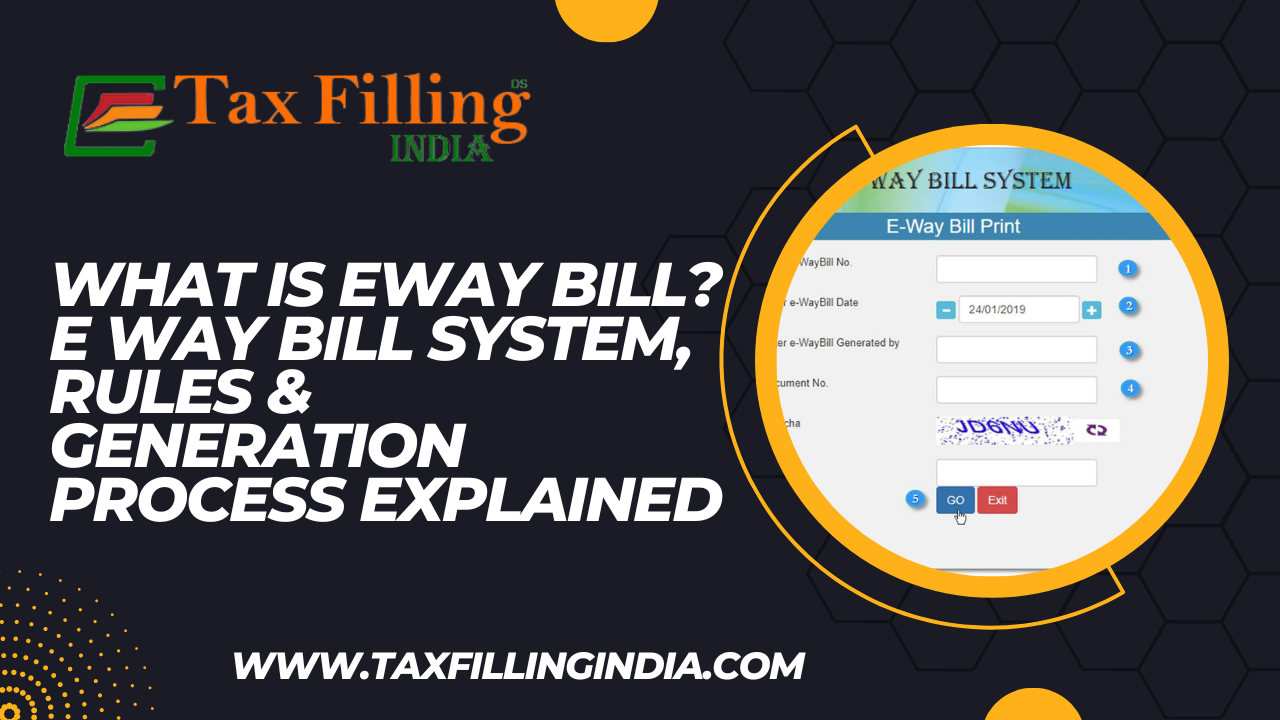What is Eway Bill? Explain E Way Bill System, Rules & Generation.

The E-way Bill is an electronic document generated under the Goods and Services Tax (GST) regime in India. It is required for the movement of goods worth more than Rs. 50,000 from one place to another. The E-way Bill system was introduced to ensure seamless movement of goods and enable better tracking and monitoring of consignments.
E-way Bill System:
1. Who Should Generate E-way Bill?
The responsibility of generating an E-way Bill lies with the consignor, consignee, or transporter. They must generate the E-way Bill electronically on the official GST portal or through a mobile app before the commencement of the movement of goods.
2. Mandatory Requirements for Generating E-way Bill:
- GSTIN: The Goods and Services Tax Identification Number (GSTIN) of the supplier, recipient, and transporter is mandatory to generate the E-way Bill.
- Invoice Details: The E-way Bill requires accurate details from the corresponding invoice, such as invoice number, date, value of goods, quantity, HS Code, and more.
- Transporter Details: If the goods are transported by a registered transporter, their vehicle number and transporter ID are required. If unregistered, a unique transporter ID or vehicle-related details must be provided.
3. Validity of E-way Bill:
The validity of an E-way Bill depends on the distance to be covered by the goods. For transportation within the same state, the E-way Bill is valid for one day for every 100 kilometers or part thereof. For interstate transportation, the validity is one day for every 100 kilometers or part thereof, up to a maximum of 15 days.
4. Rules and Guidelines:
- Multiple Modes of Transportation: If the goods are transported through different modes, such as a combination of road, rail, air, or ship, a separate E-way Bill must be generated for each mode.
- Updates and Cancellations: The E-way Bill can be updated or canceled within a specified period. However, once verified by a tax officer, it cannot be modified.
- Verification Process: Tax officers have the authority to intercept and verify the E-way Bill and related documents during transit.
- Exemptions: Certain goods, such as specific medical supplies, live animals, and essential goods, are exempt from generating an E-way Bill.
5. Benefits of E-way Bill:
- Streamlined Movement of Goods: The E-way Bill system facilitates the efficient movement of goods within and across states, reducing transit time and promoting a seamless business environment.
- Enhanced Monitoring and Control: The government can effectively monitor and control the movement of goods, reducing the scope of tax evasion and improving overall compliance.
- Digital Efficiency: The electronic generation and management of E-way Bills minimize paperwork, making the process faster and more cost-effective.
Understanding and complying with the E-way Bill system is essential for businesses engaged in the movement of goods. By generating accurate E-way Bills and adhering to the rules and guidelines, businesses can ensure hassle-free transportation and avoid penalties or legal complications.
Comments
Post a Comment